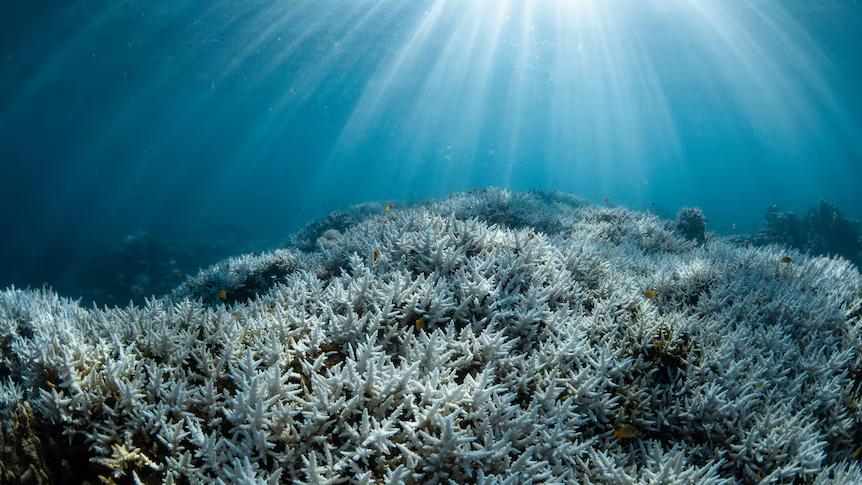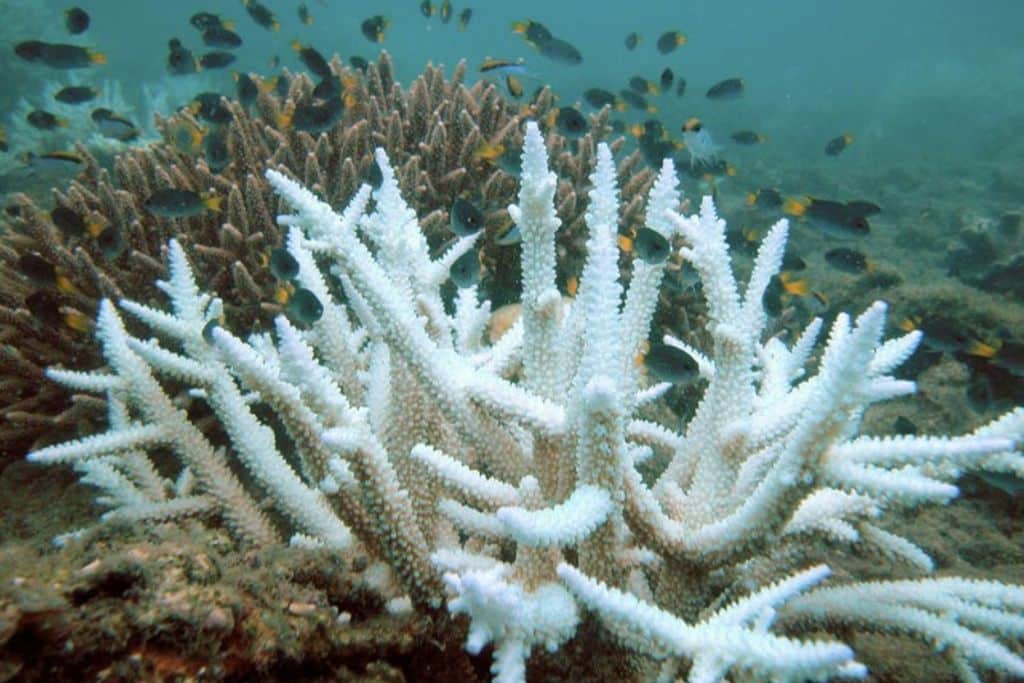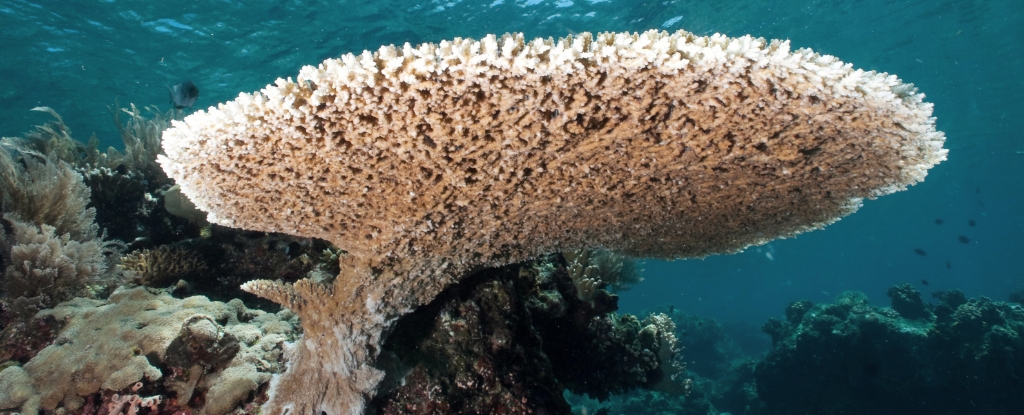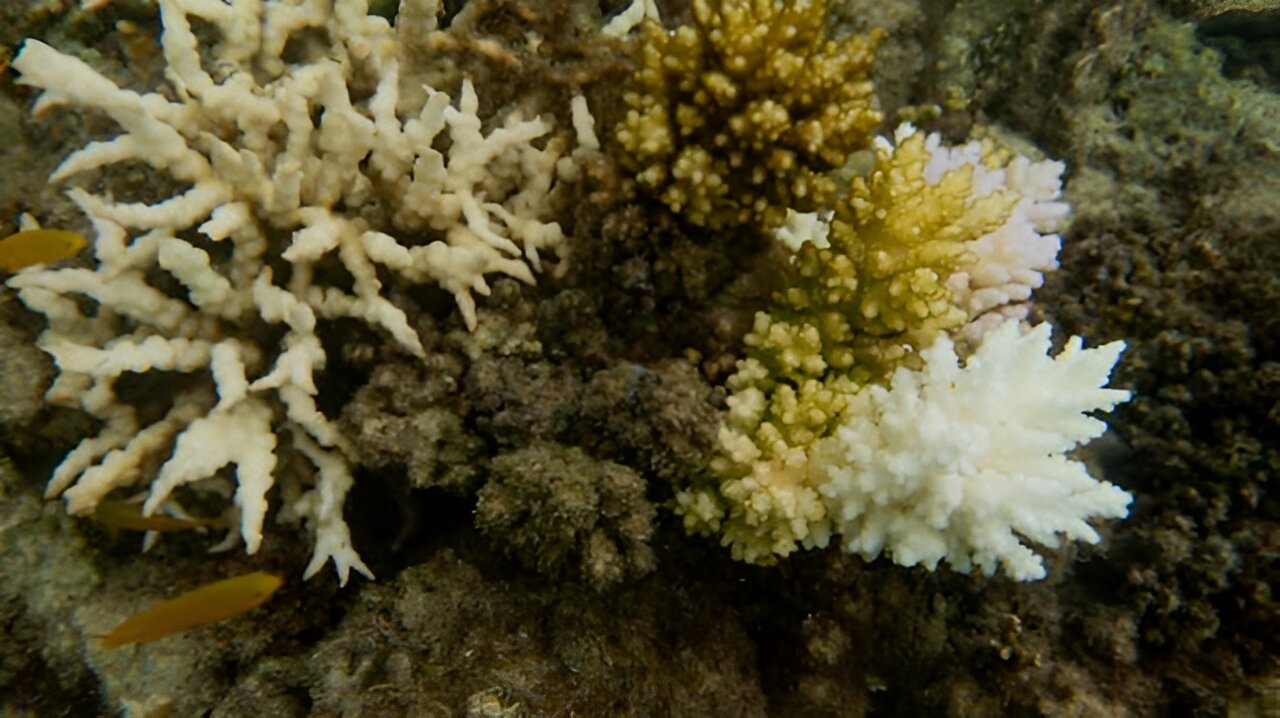
The latest Global Tipping Points Report suggests the world's coral reefs are at risk of mass dieback. More than 80 per cent of coral reefs worldwide have bleached in a marine heatwave in the past two years.

From 1 January 2023 to 20 April 2025, bleaching-level heat stress has impacted 83.7% of the world’s coral reef area.

Parts of the Great Barrier Reef have suffered the highest coral mortality on record, Australian research showed Tuesday, with scientists fearing the rest of it has suffered a similar fate.

Surprising new evidence of variable heat tolerance in corals was discovered recently. As the world's oceans warm, these differences are important.

The results are sobering confirmation that global warming will continue to damage the Great Barrier Reef. If humanity does not divert from its current course, our generation will likely witness the demise of one of Earth's great natural wonders.

The fourth global coral bleaching event, announced this week, is an urgent wake-up call to the world.

Since the mid-1990s, coral in the Great Barrier Reef has declined by more than 50%. The research spanned the entire 2,300 km of the Great Barrier Reef and found a disturbing loss at pretty much every level.

Scientists project 70 to 90 percent of coral reefs will disappear over the next 20 years as a result of climate change and pollution. What's more, rising sea surface temperatures and acidic waters could eliminate nearly all existing coral reef habitats by 2100.

The Pacific nation of Palau has become the first country to ban sun cream that is harmful to corals and sea life. From now sun cream that includes common ingredients, including oxybenzone, is not allowed to be worn or sold in the country.

Starting in January 2020, tourists who bring banned sunscreen into the country will have them confiscated and retailers who attempt to sell them and break the ban will face fines of $1,000.

The bill that is scheduled to take effect on Jan. 1, 2021, will specifically prohibits the sale and distribution of sunscreens that contain oxybenzone and octinoxate.

Australia’s government has pledged hundreds of millions of dollars toward protecting the Great Barrier Reef, in what’s being called the largest single investment in the embattled ecosystem ever.

In a notably blunt study in the journal Nature scientists report that in 2016 alone, about 30 percent of the Great Barrier Reef’s corals were lost, with the most severe damage in the isolated northern sector.

As water temperatures rise and ocean acidity levels increase, corals are dying off at record rates. Australian researchers believe they may be able to prevent coral bleaching in parts of the world's largest coral reef system.

Ocean acidification will severely impair coral reef growth before the end of the century if carbon dioxide emissions continue unchecked.